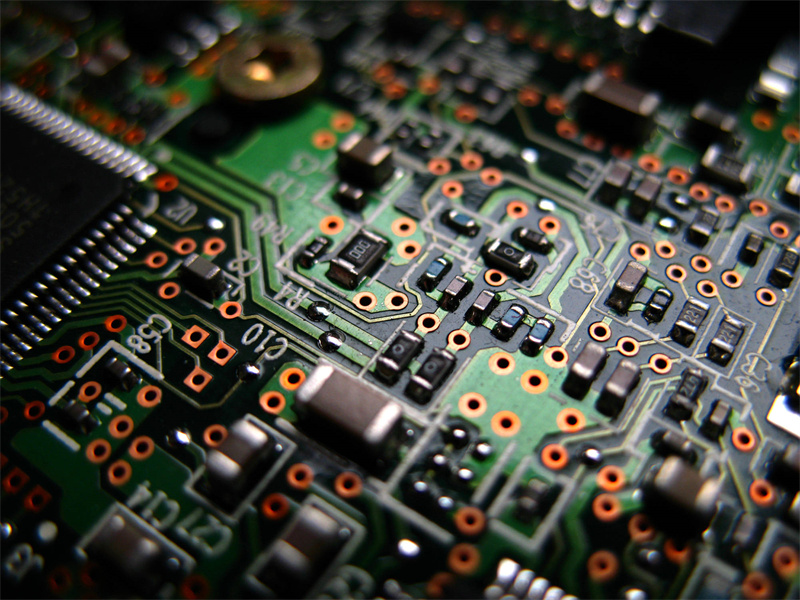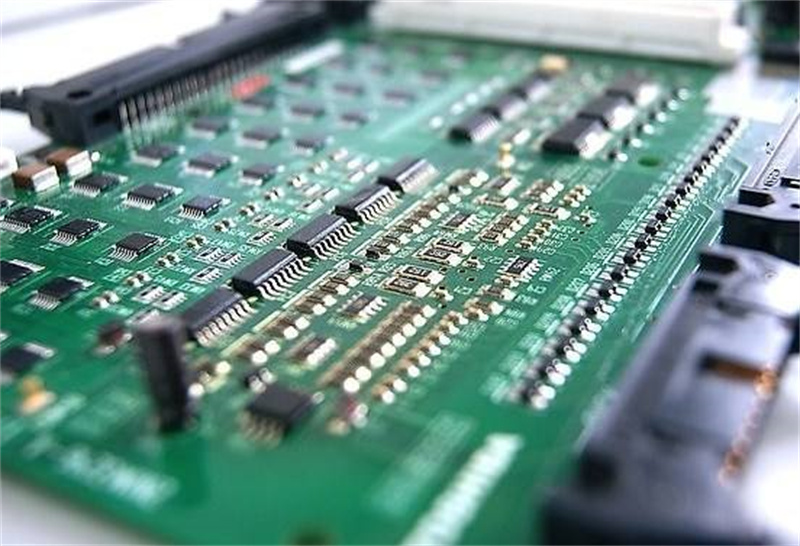Electronic
1. Excellent electrical properties: Fiberglass has excellent electrical insulating properties, making it ideal for use in electronic components that require insulation.
2. High strength-to-weight ratio: Fiberglass is a lightweight material that can be engineered to have high strength, making it suitable for the production of lightweight electronic devices.
3. Chemical resistance: Glass fiber has strong chemical resistance, which is very suitable for applications where electronic equipment may be exposed to chemicals.
4. Durability: Fiberglass is a durable material that can withstand rough handling, making it ideal for keeping components strong in harsh conditions.
5. Low cost: Fiberglass is a relatively inexpensive material compared to other materials such as aluminum or carbon fiber, and is a cost-effective solution for the production of electronics. These properties make fiberglass a versatile and reliable material for the production of electronic components.
1. Printed Circuit Boards: Fiberglass is used as an insulating material in printed circuit boards to protect the boards.
2. Electrical insulation: Glass fiber is used as an insulating material for electrical appliances such as transformers, motors, and generators because of its electrical insulation properties.
3. Insulation: Fiberglass is used as insulation in appliances such as ovens and dishwashers.
4. Reinforcement material: Glass fiber is used as a reinforcement material for home appliances such as washing machine drums and refrigerator liners.
5. Cable Insulation: Fiberglass is also used as insulation for cables due to its high strength and durability.
In conclusion, the choice of fiberglass material depends on the specific application requirements. Each type of glass fiber has unique properties and is suitable for different applications in electronics and appliances.
Fiberglass itself does not conduct electricity because it is an insulating material. However, fiberglass can be coated with a conductive material to make it conductive. This is achieved by adding a thin layer of metal, such as copper, silver or gold, to the surface of the fiberglass through a process called electroplating. The metal coating forms a conductive path along the length of the glass fiber, allowing it to conduct electricity. The resulting conductive glass fibers are used in a variety of applications such as electrical contacts, circuit boards and electronic components. Their advantages are light weight, corrosion resistance, excellent mechanical strength and stability.
Glass fiber, also known as glass fiber, is a versatile material that has a wide range of applications in the field of electrical conductivity. Fiberglass is made by pulling molten glass through fine holes in a platinum sleeve, causing the glass to solidify into thin strands. One of the key properties of fiberglass is its high strength-to-weight ratio. Fiberglass is a lightweight material that can withstand enormous mechanical stress and strain without breaking. This makes it an ideal material for electrical and electronic applications where weight and strength are important considerations. Fiberglass is also an excellent electrical insulator. It has high dielectric strength, which means it can withstand high voltages without damage. This characteristic makes them particularly useful in applications where controlled or controlled current flow is required, such as the design of printed circuit boards or high voltage transmission lines. In addition to its insulating properties, fiberglass is also a good conductor of heat. It has low thermal conductivity, which means it is an effective thermal insulator. This makes it useful in applications where temperature control is important, such as in commercial and residential buildings. Fiberglass also exhibits good chemical resistance. It is resistant to most chemicals, including acids and alkaline solutions. This makes it ideal for use in harsh chemical environments or when exposed to highly corrosive substances. Overall, the unique combination of mechanical strength, electrical insulation, thermal insulation, and chemical resistance of glass fibers make them valuable materials in the field of electrical conduction. It has many applications in industries such as aerospace, automotive, construction and electronics.
Contact us for more fiberglass composite products, services and information.
Website: www.fiberglass-expert.com
Whatsapp: +8618577797991
Email: sale2@zbrehon.cn





